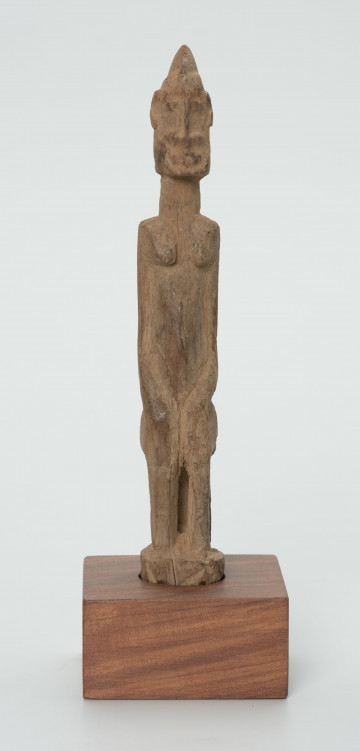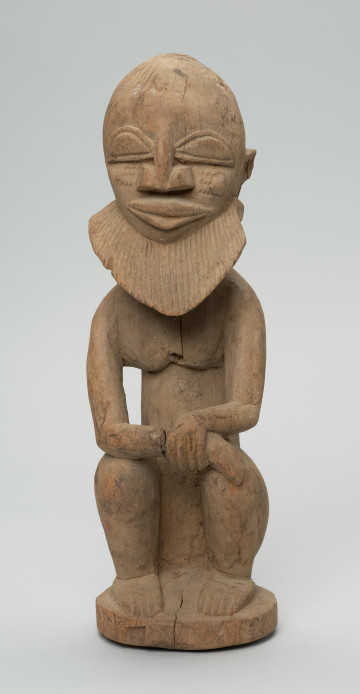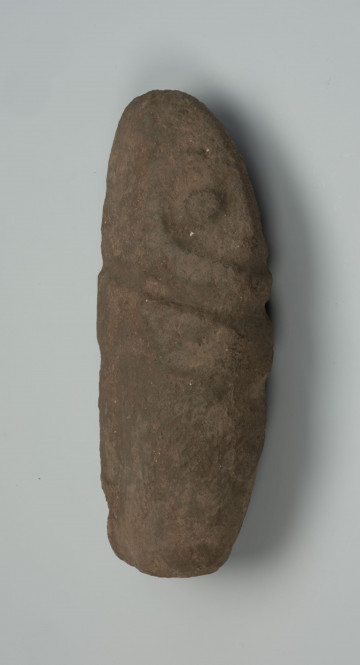
Figurine - ancestor
między 1901 — 1950
National Museum in Szczecin
Part of the collection: Collection of Dogonian art
Every Dogon boy must undergo an initiation during which he is circumcised to become a real man. The decision to organise the boys' initiation is taken by the Hogon, priest of the Lebe cult and customary head of the village, while the circumcision procedure is performed by a local healer (witch doctor). Several stages can be distinguished in the whole initiation: leaving the village, the preparation and performance of the procedure, the period of convalescence and the ceremonial return to the village, which is equivalent to the entry of young boys into the circle of adult men. On the day appointed by Hogon, the selected adepts are led out of the village by their older colleagues. They remain outside the village for 3-6 weeks. They are looked after by older men who give them the appropriate instruction and prepare them for the procedure. The boys make wendjalma, a type of percussion instrument made of calabash, which they shake to warn of their presence. This signal is essential especially for women and uncircumcised boys and men (usually the members of castes), who should stay away from the initiates. The circumcision procedure is usually performed in the bush. After the foreskin is removed, the boys live in seclusion in a special house (dune). Only their fathers or older brothers can visit them there and bring them food. Dune is a period of convalescence, and its length depends on the rate of healing of the wound. Some boys leave after just one week; others stay longer. Young men return to the village together. It is a solemn event, accompanied by music and singing. After completing the initiation, the boys become adult men. They can take part in religious rituals and, together with other men, make critical decisions for the whole village.
Ewa Prądzyńska
Author / creator
Dimensions
cały obiekt: height: 11 cm, width: 2,5 cm
Object type
figure
Creation time / dating
Creation / finding place
Identification number
Location / status

między 1901 — 1950
National Museum in Szczecin

między 1951 — 2000
National Museum in Szczecin

między 1951 — 2000
National Museum in Szczecin
DISCOVER this TOPIC
Castle Museum in Łańcut
DISCOVER this PATH
Educational path